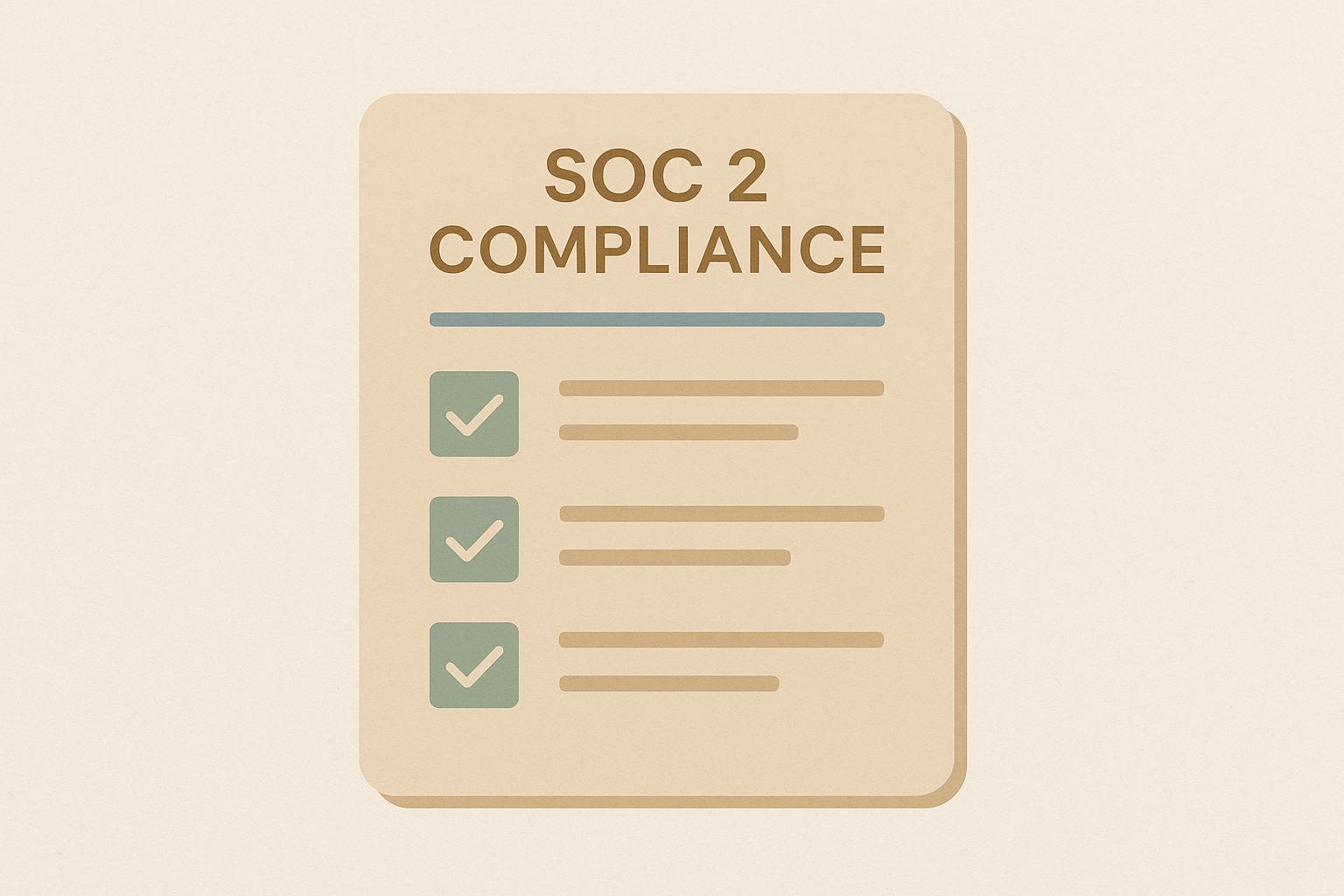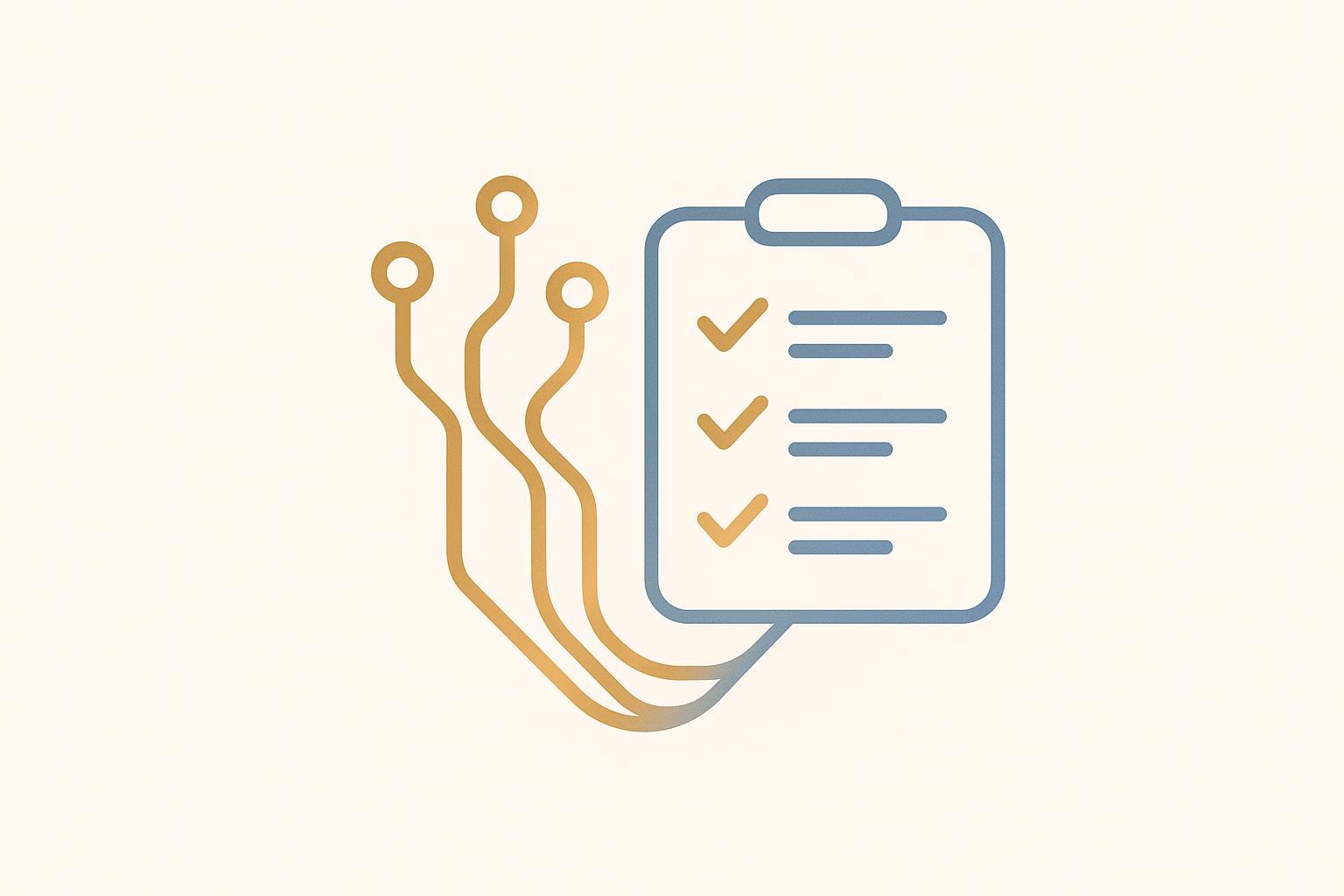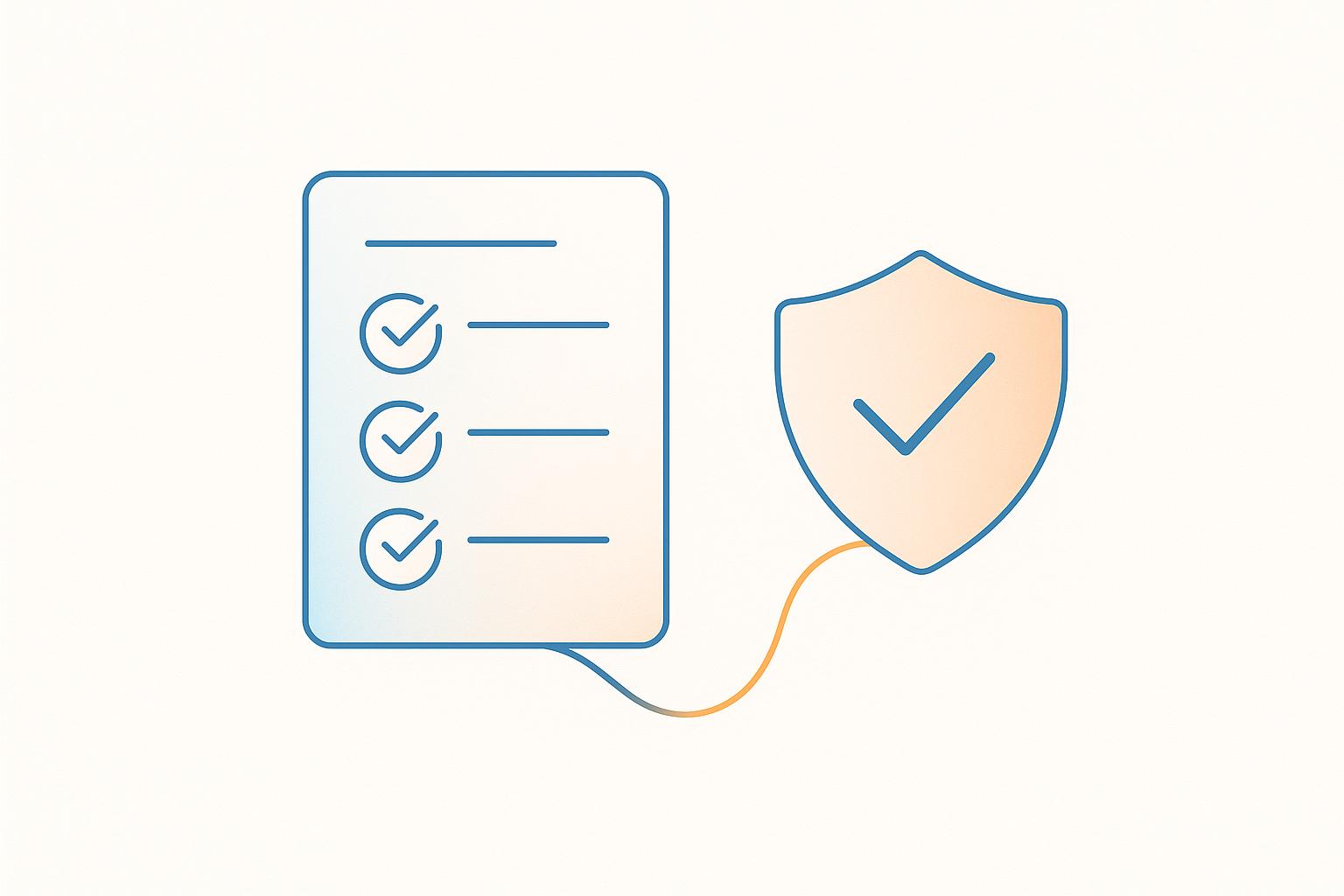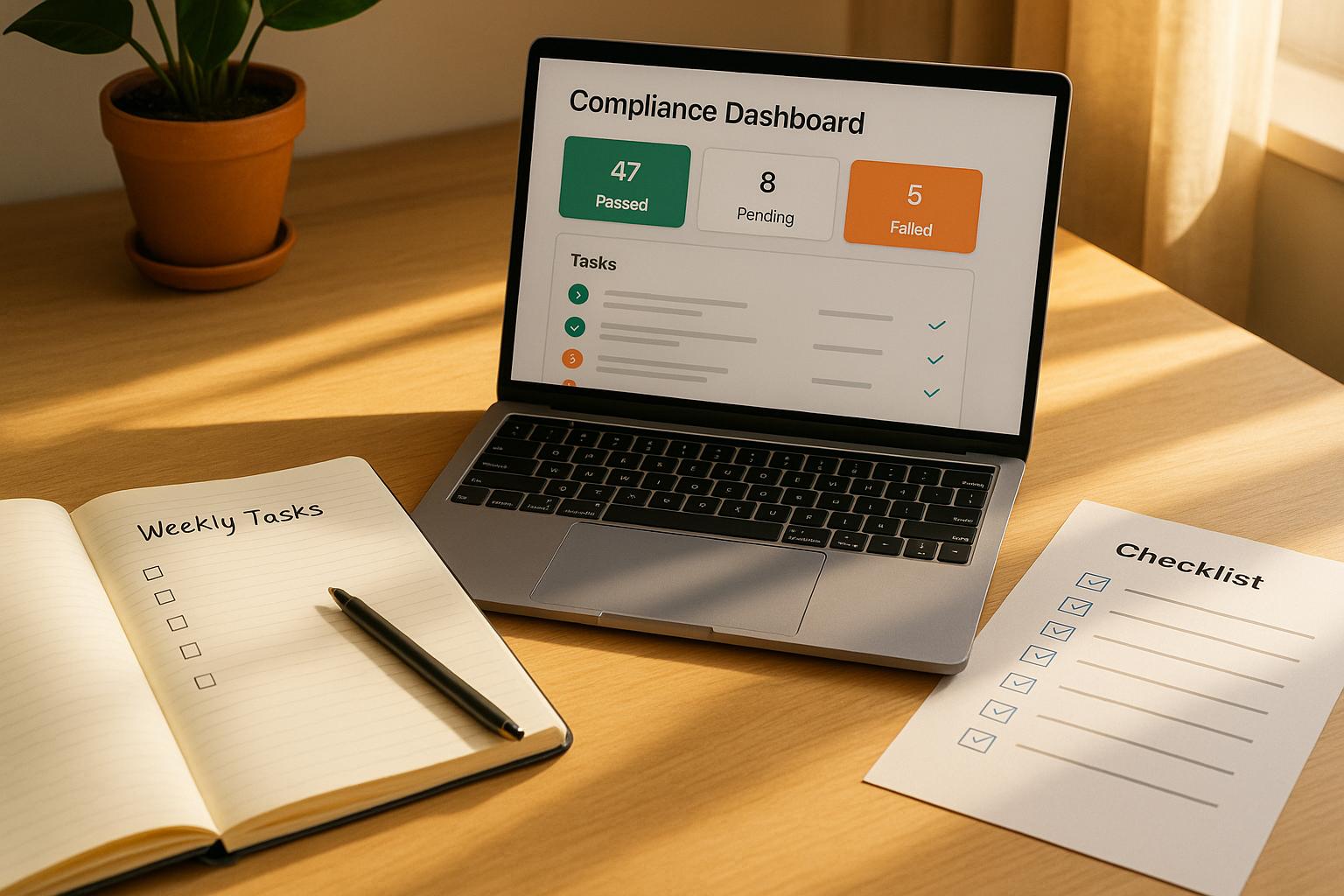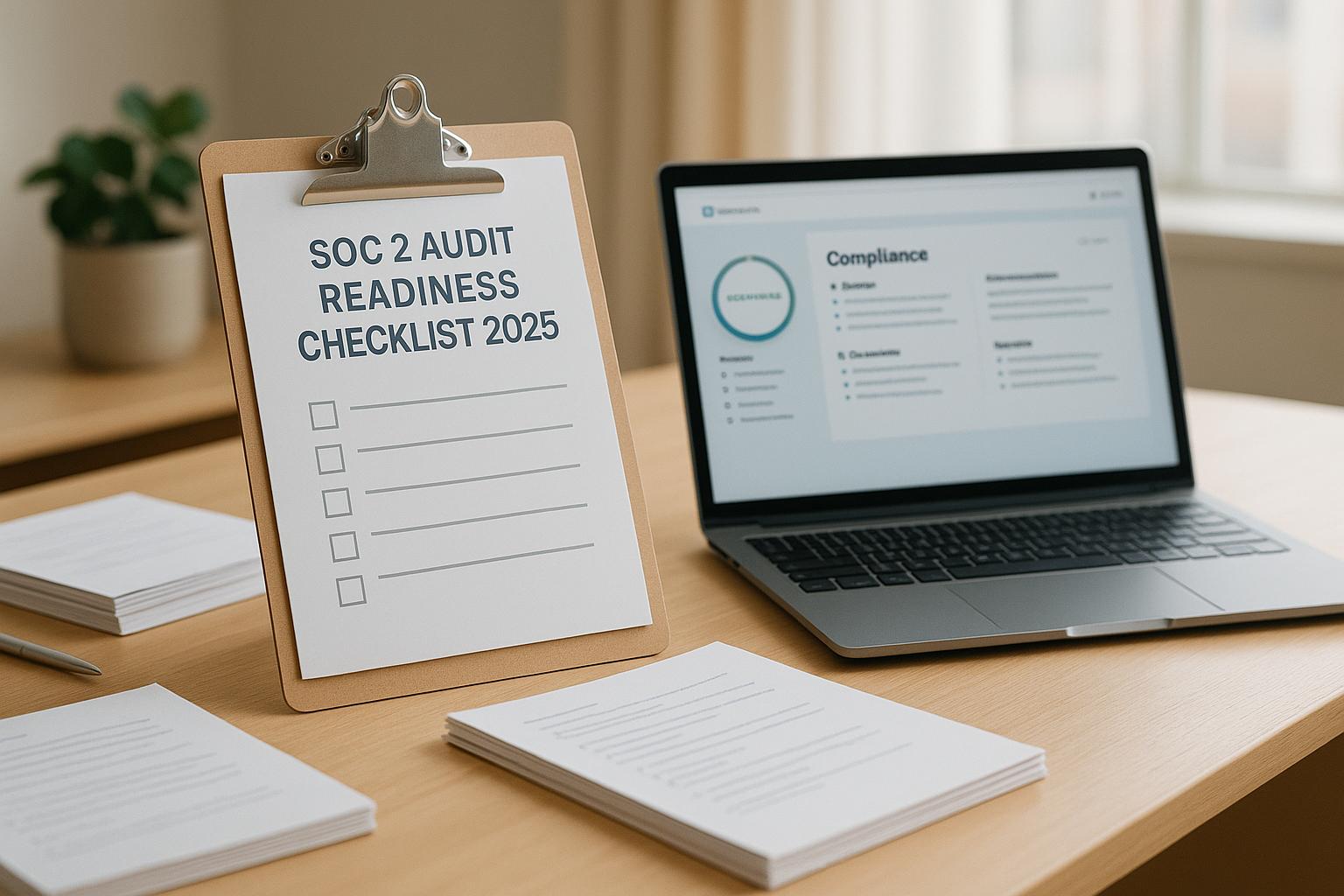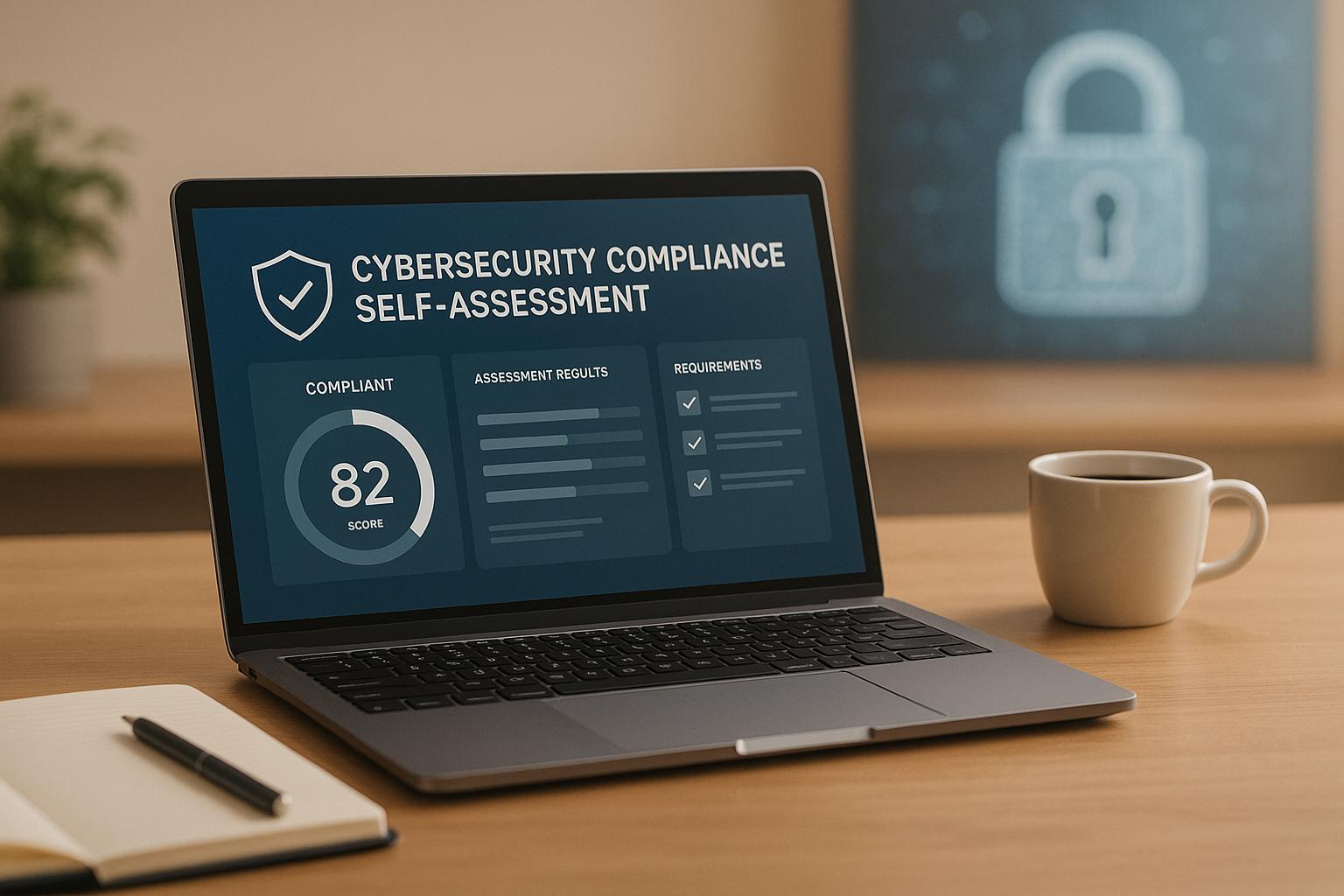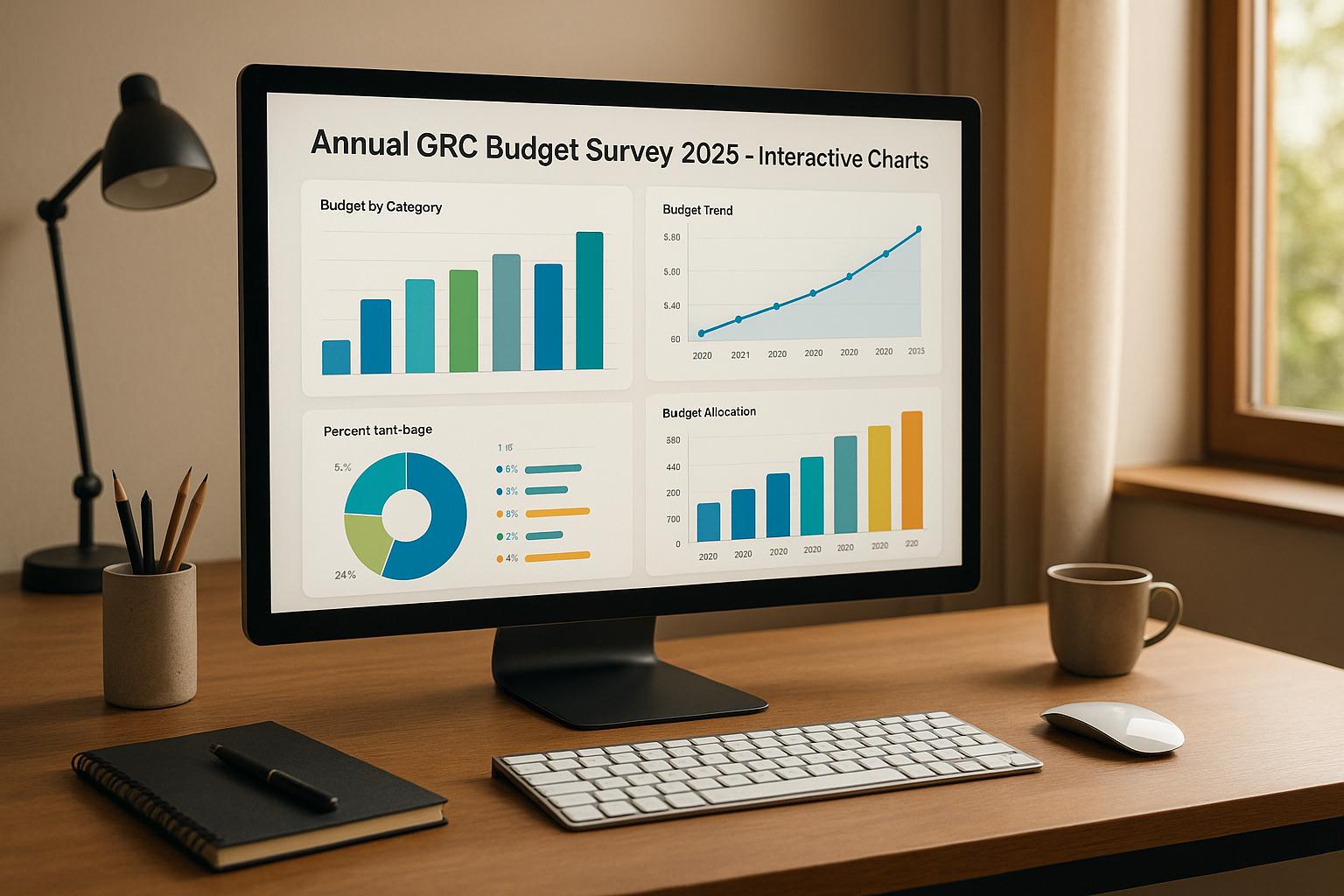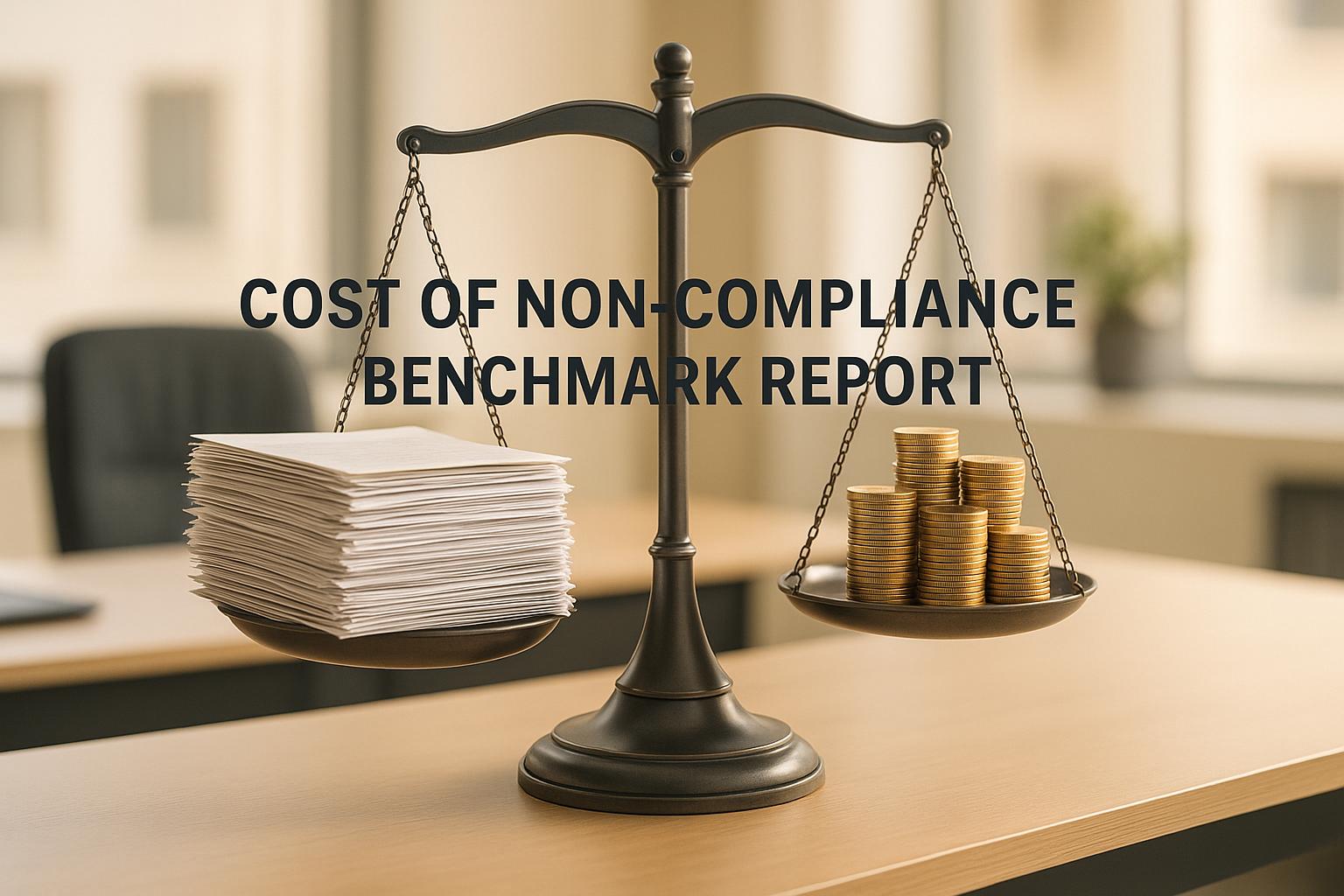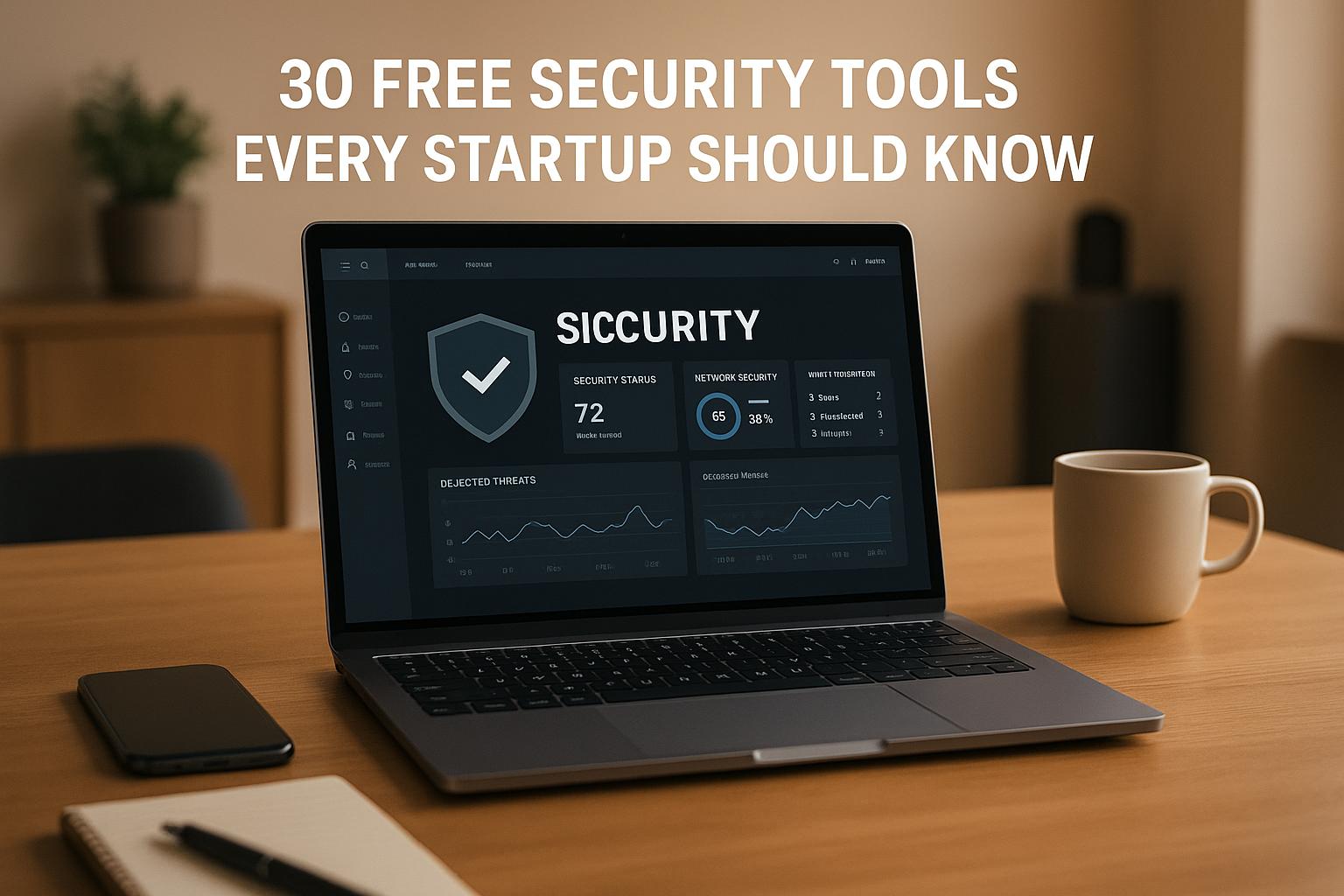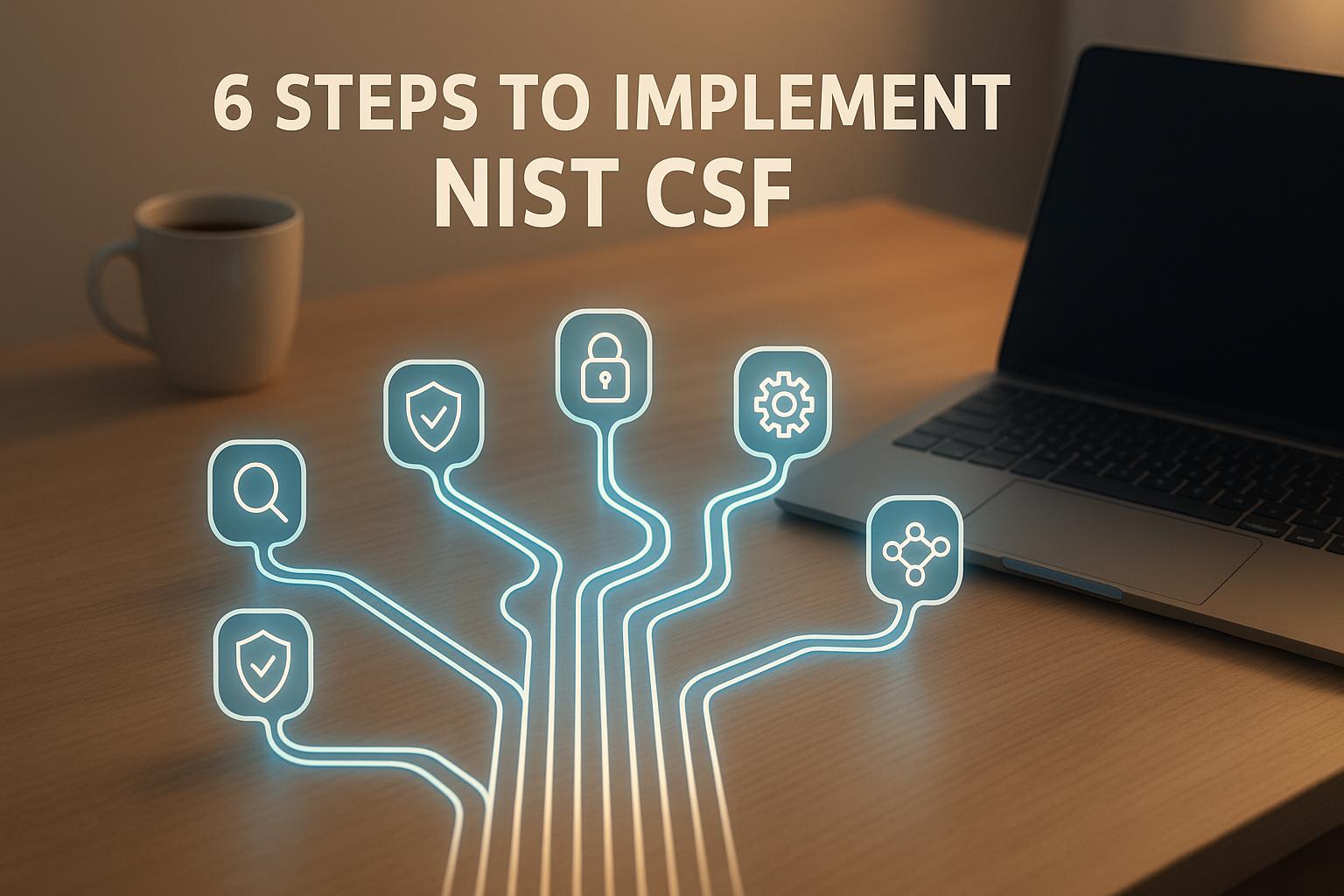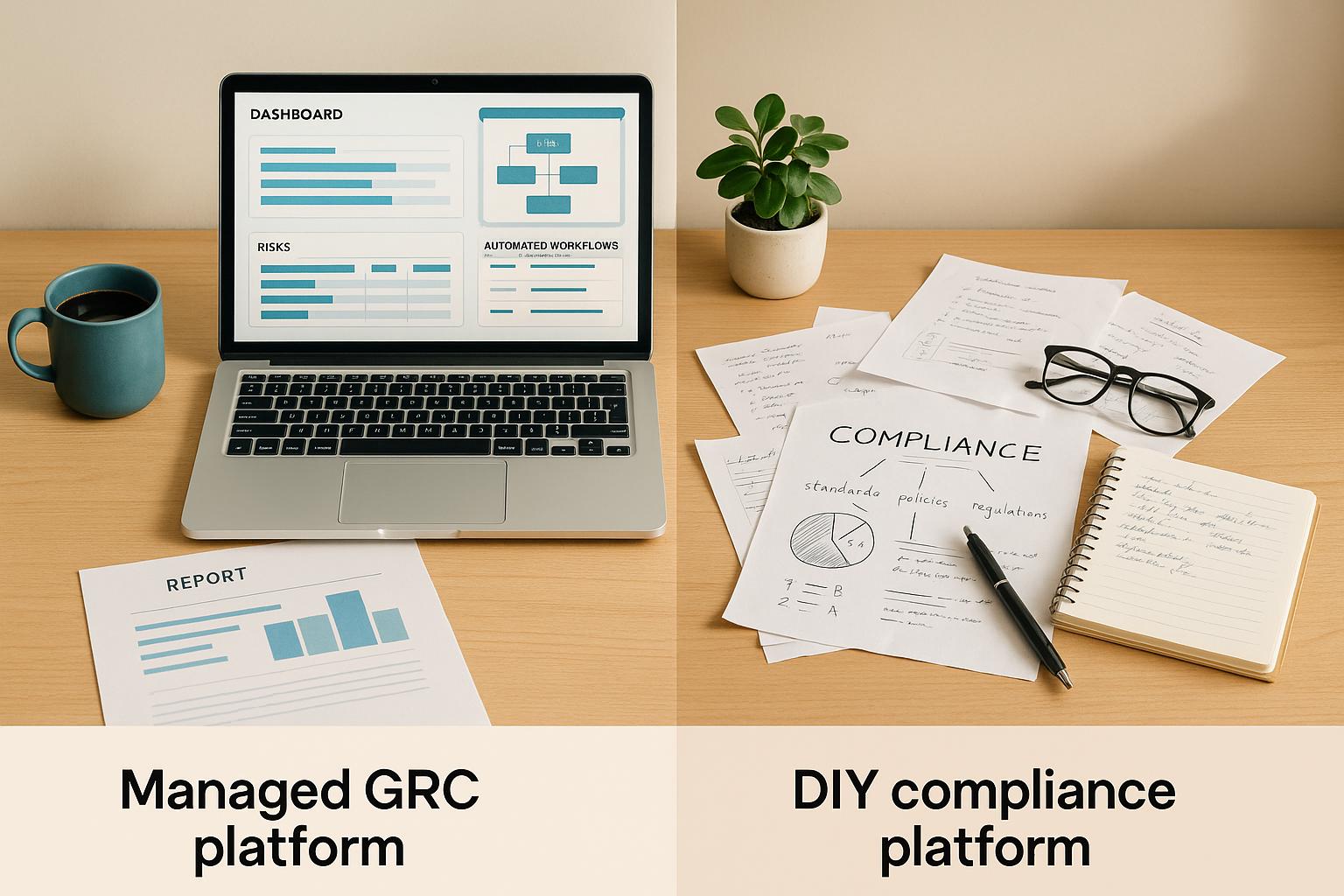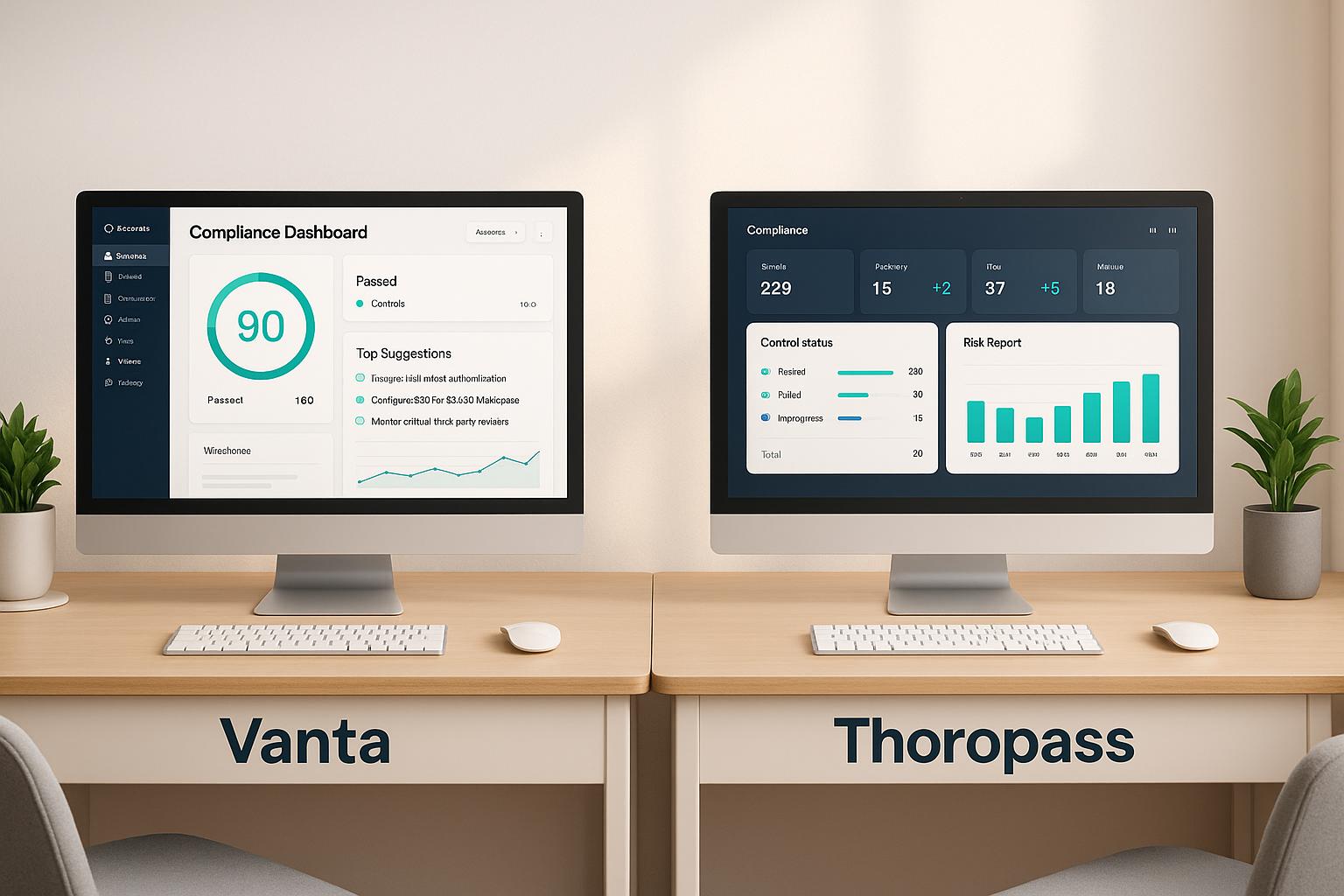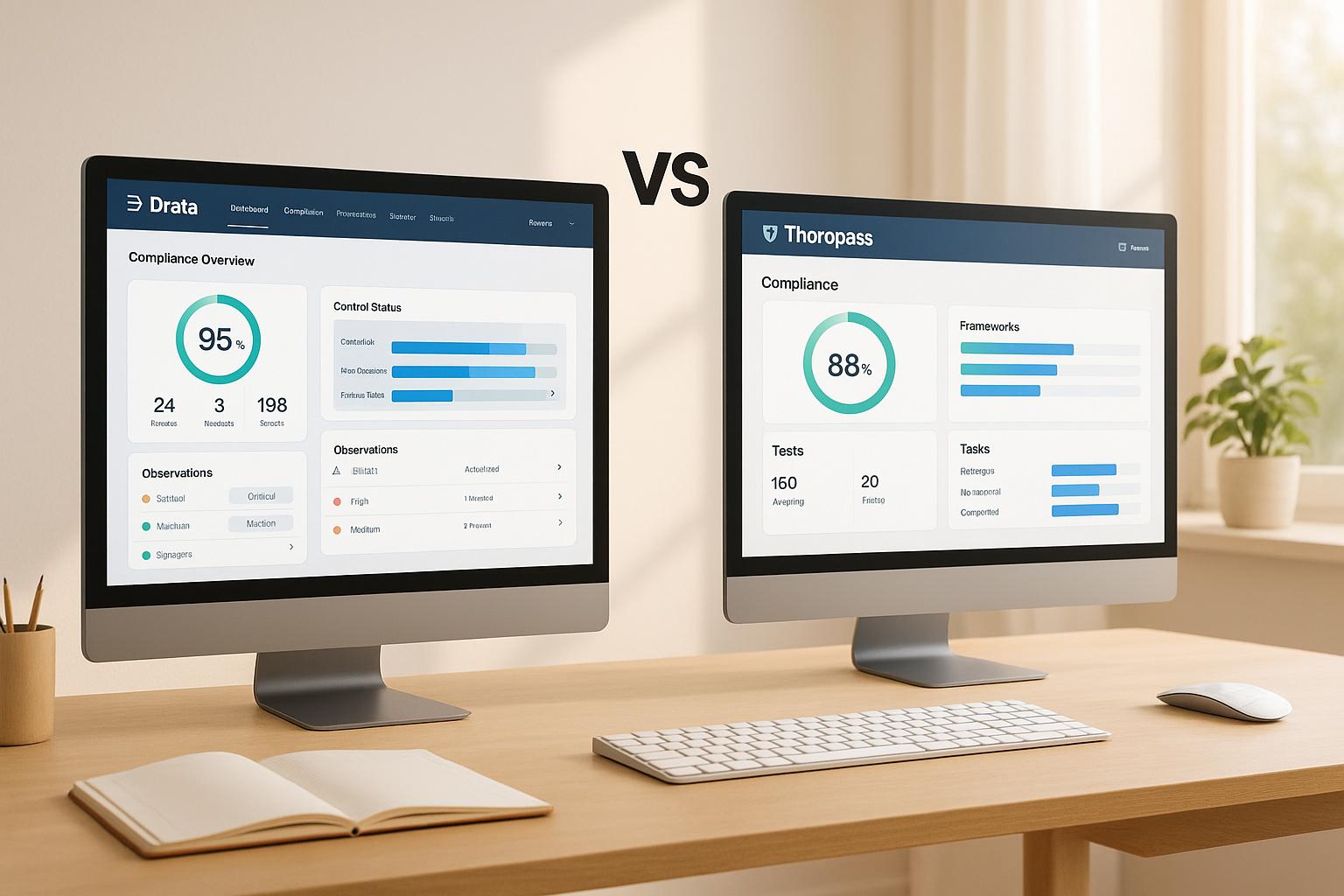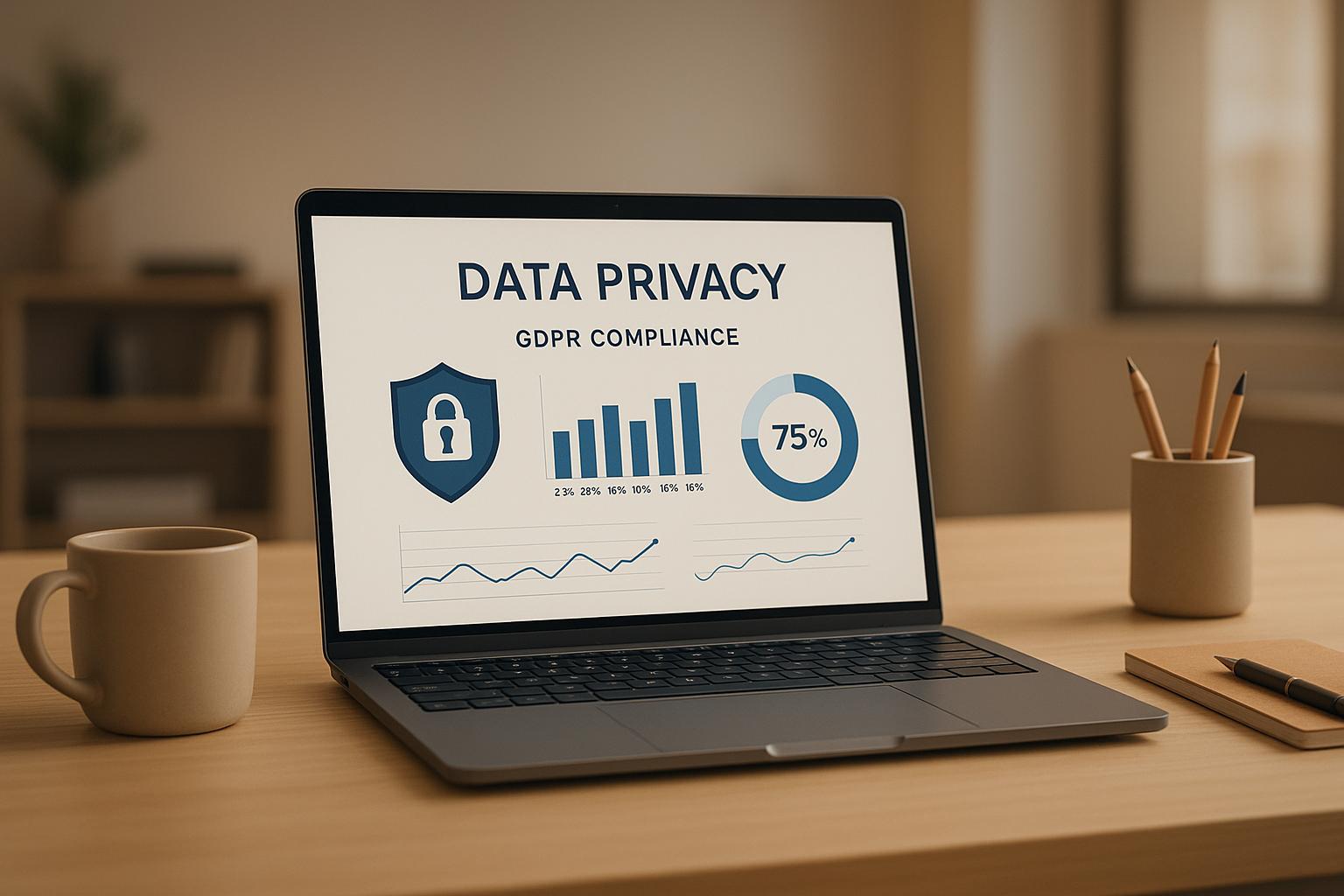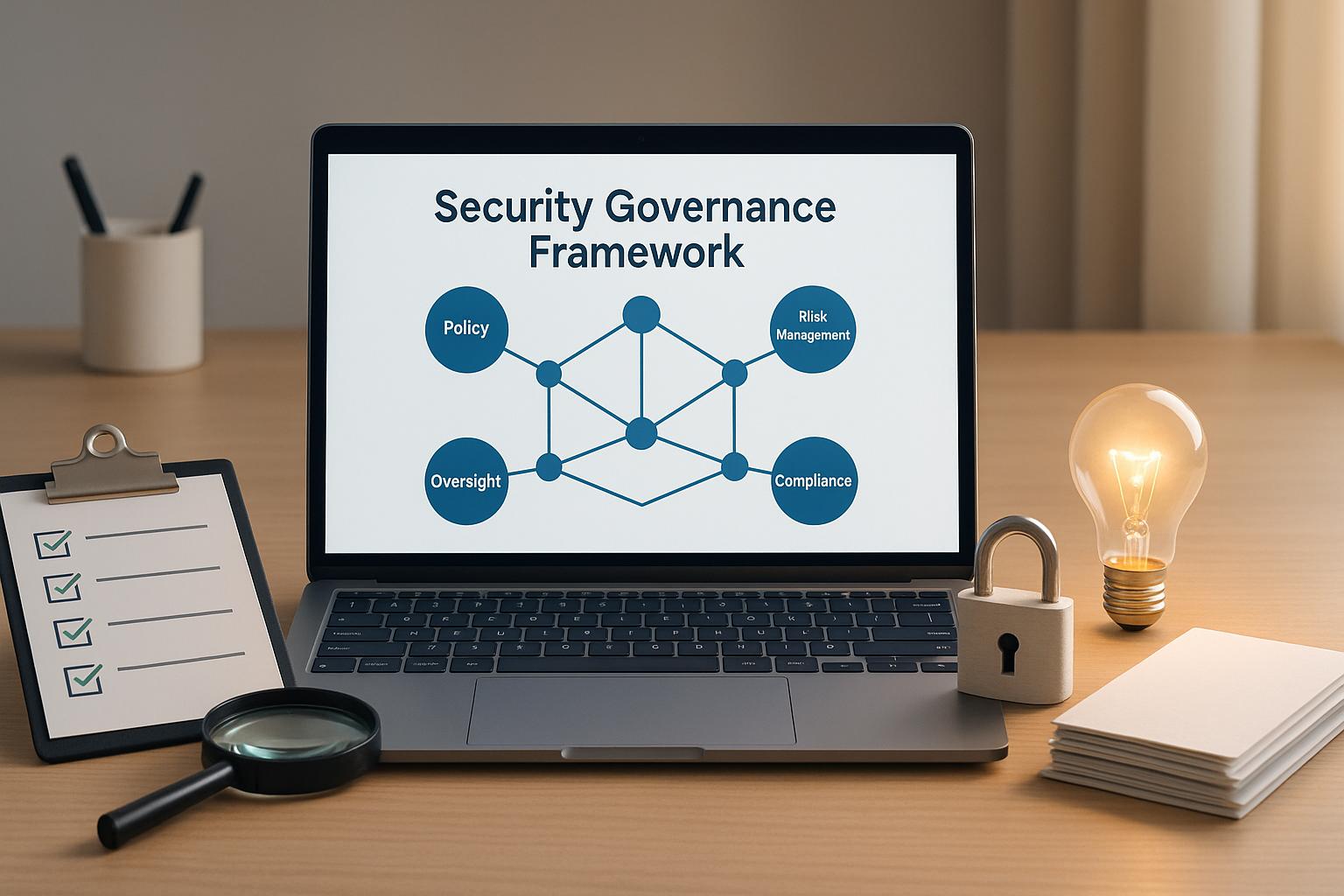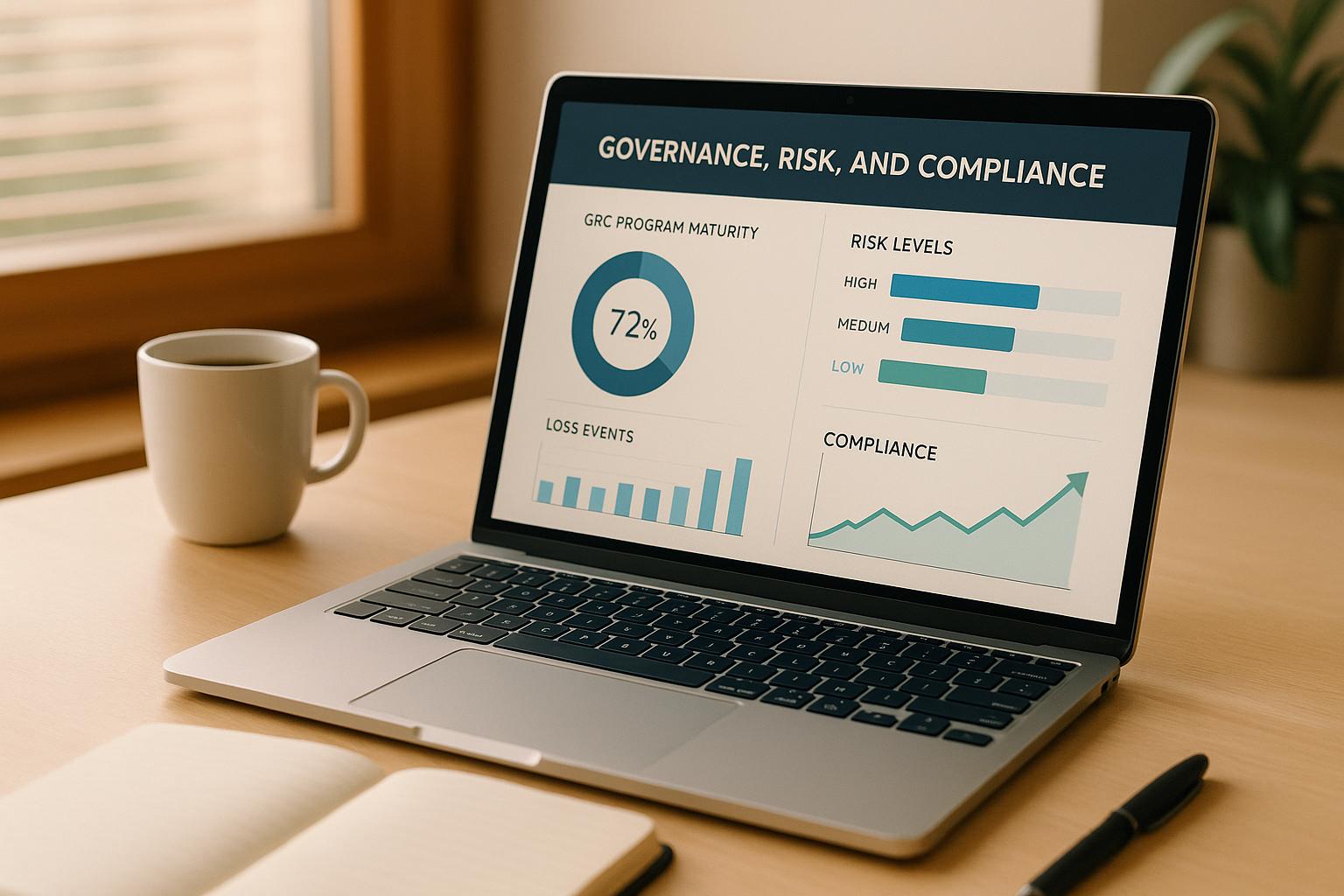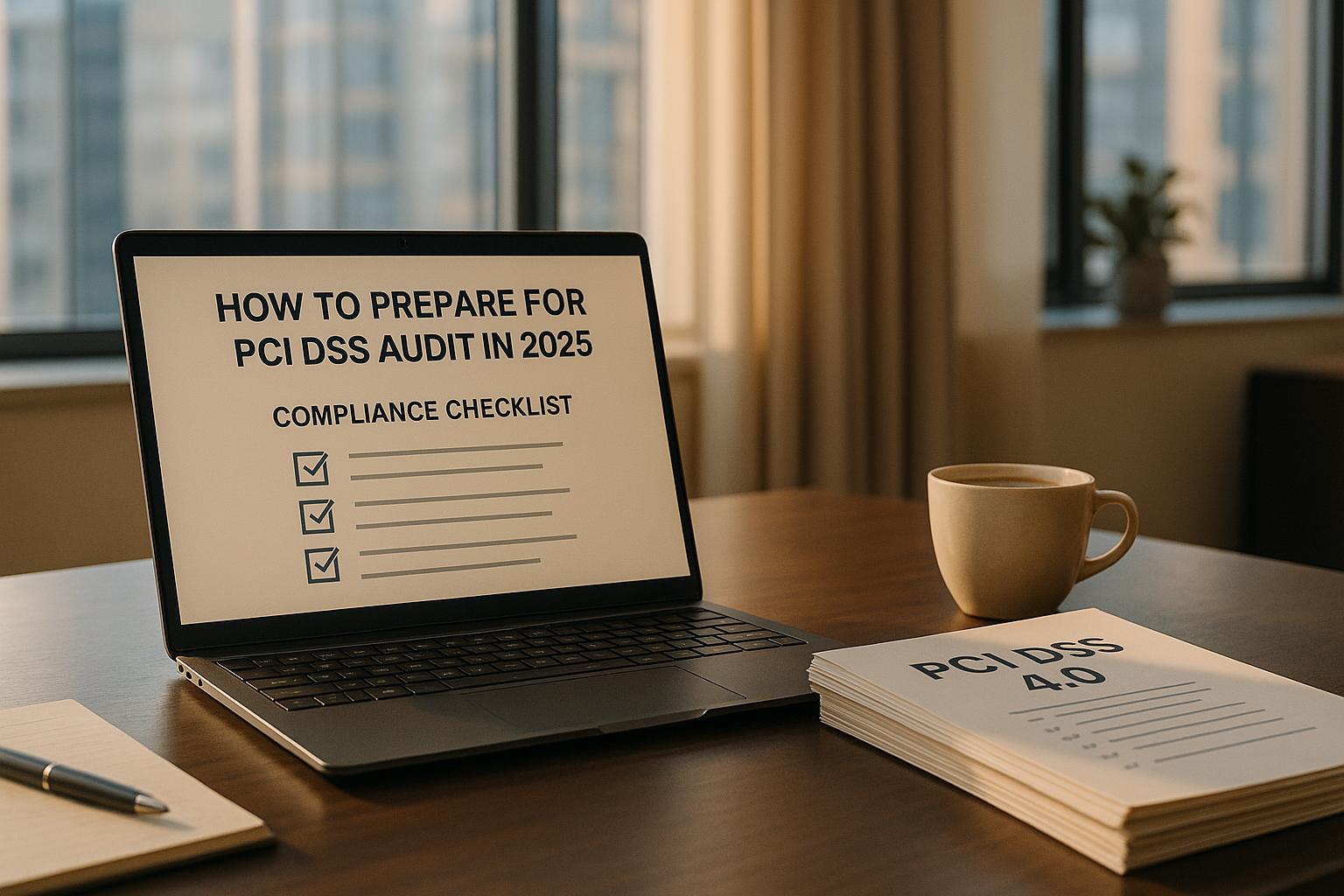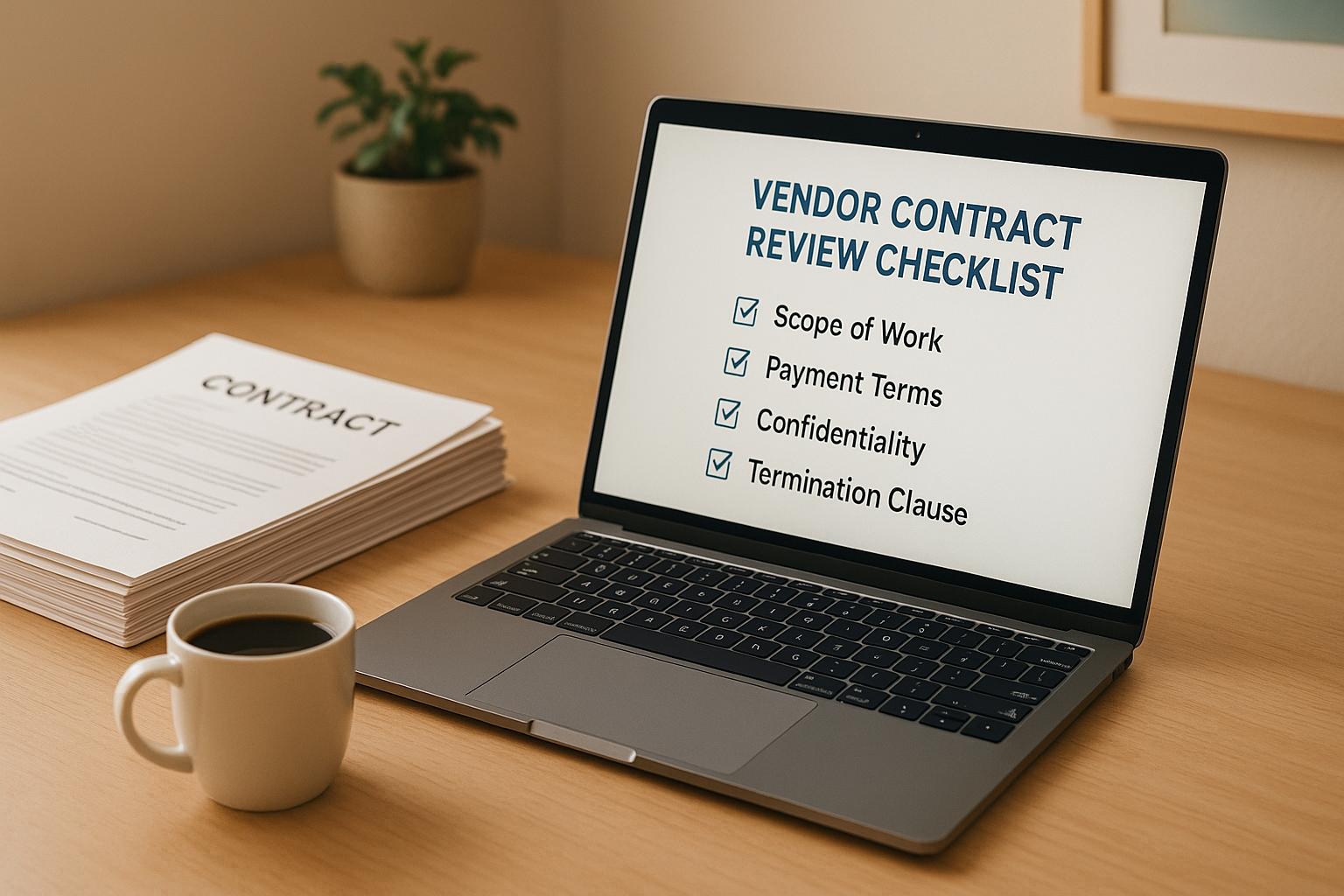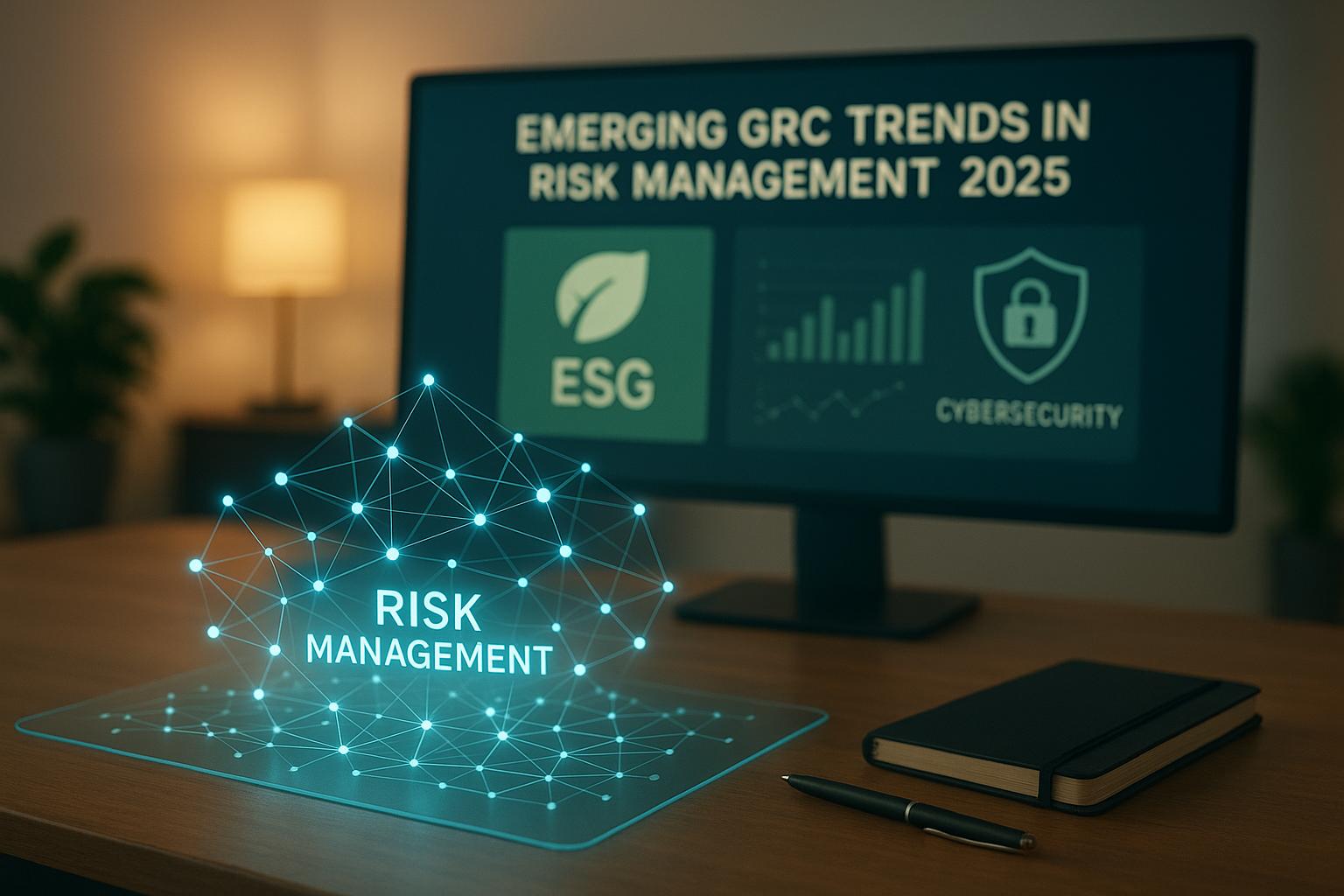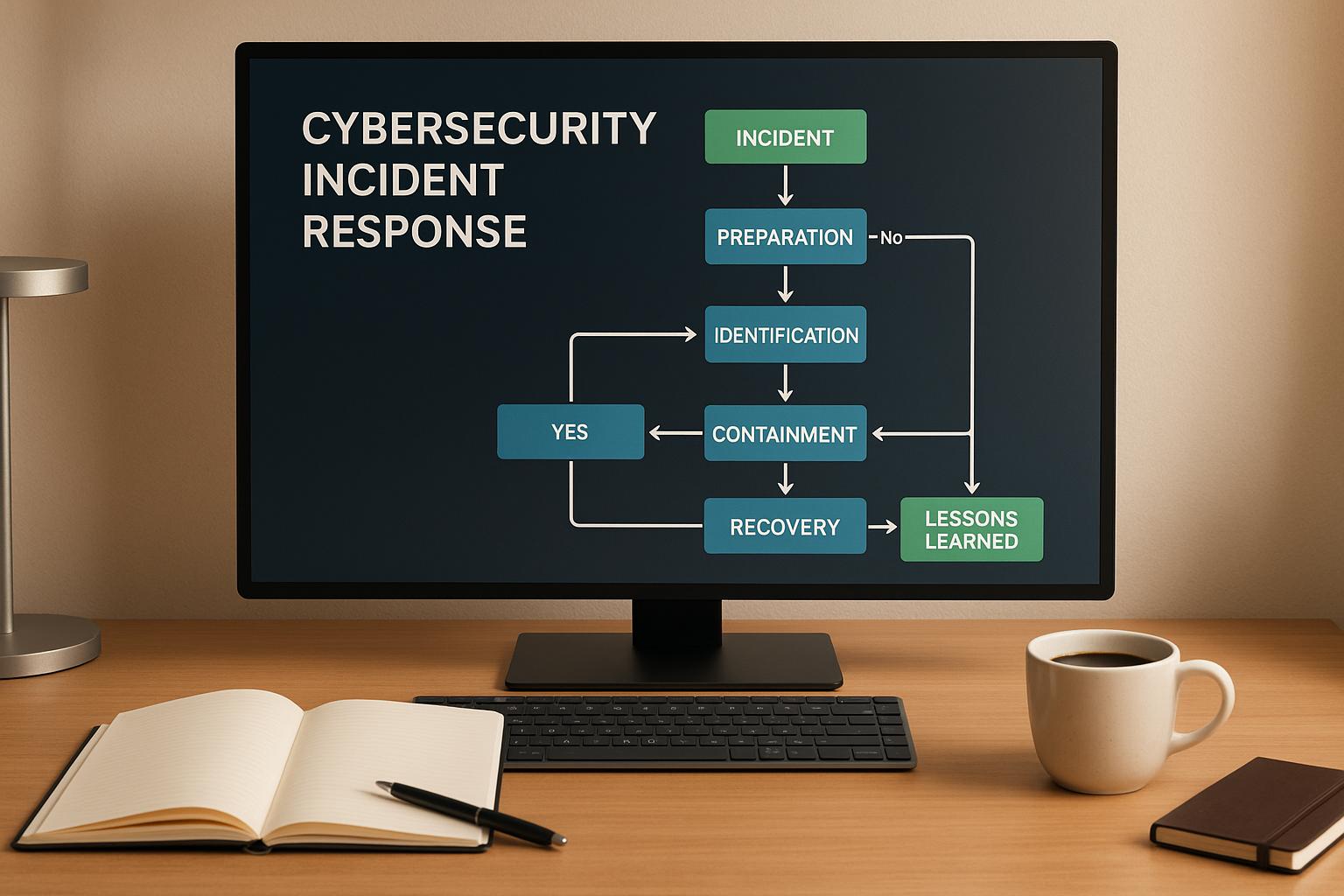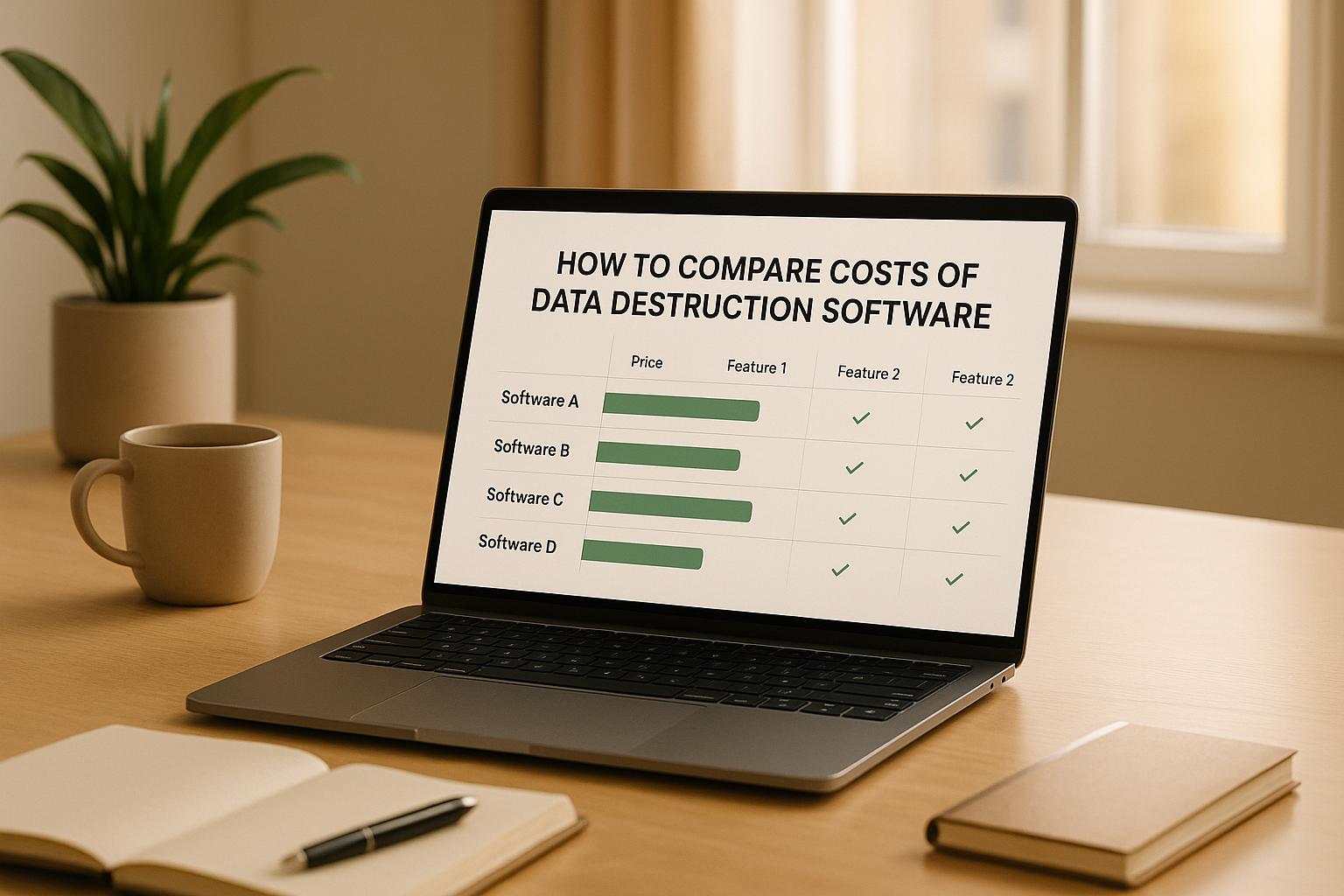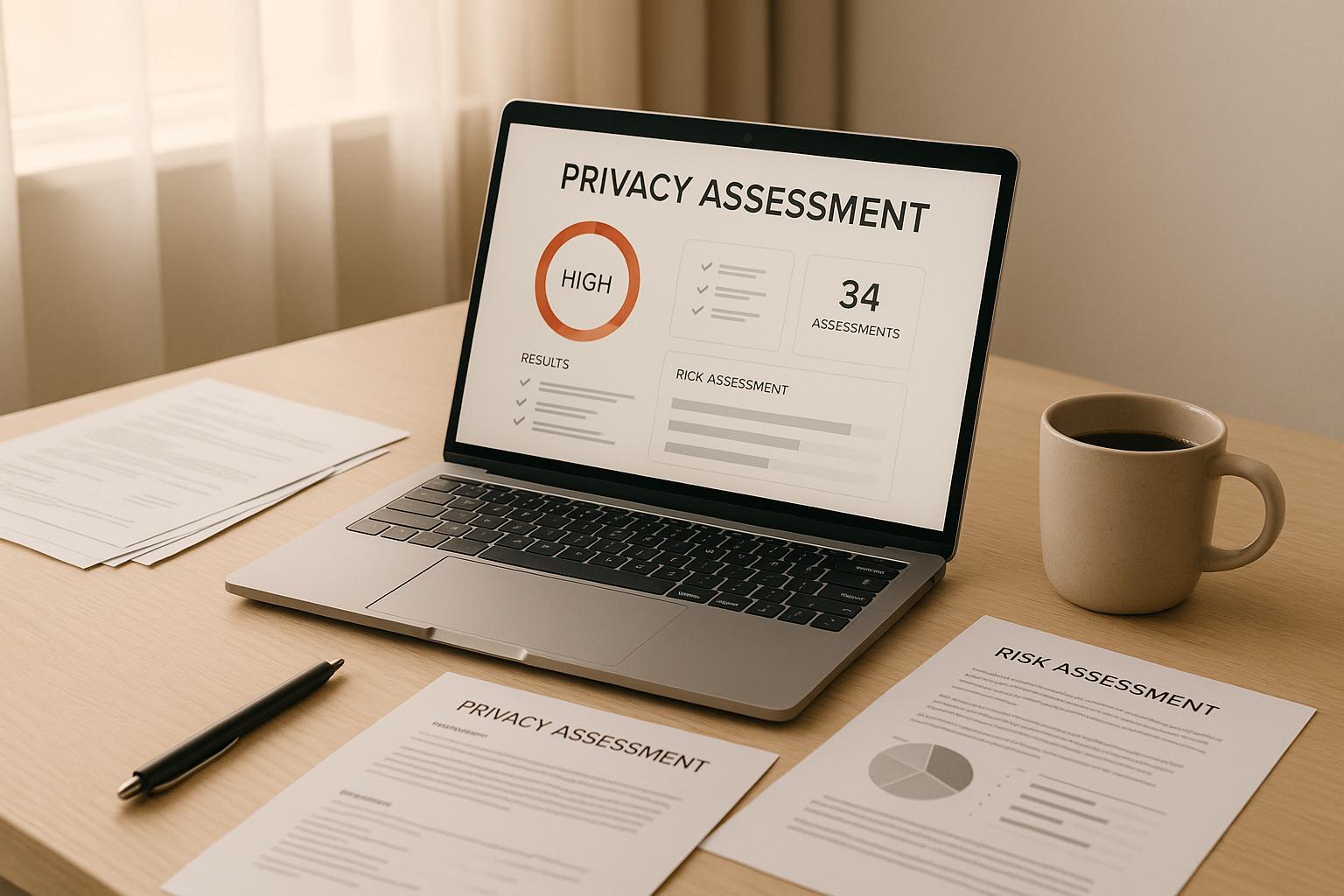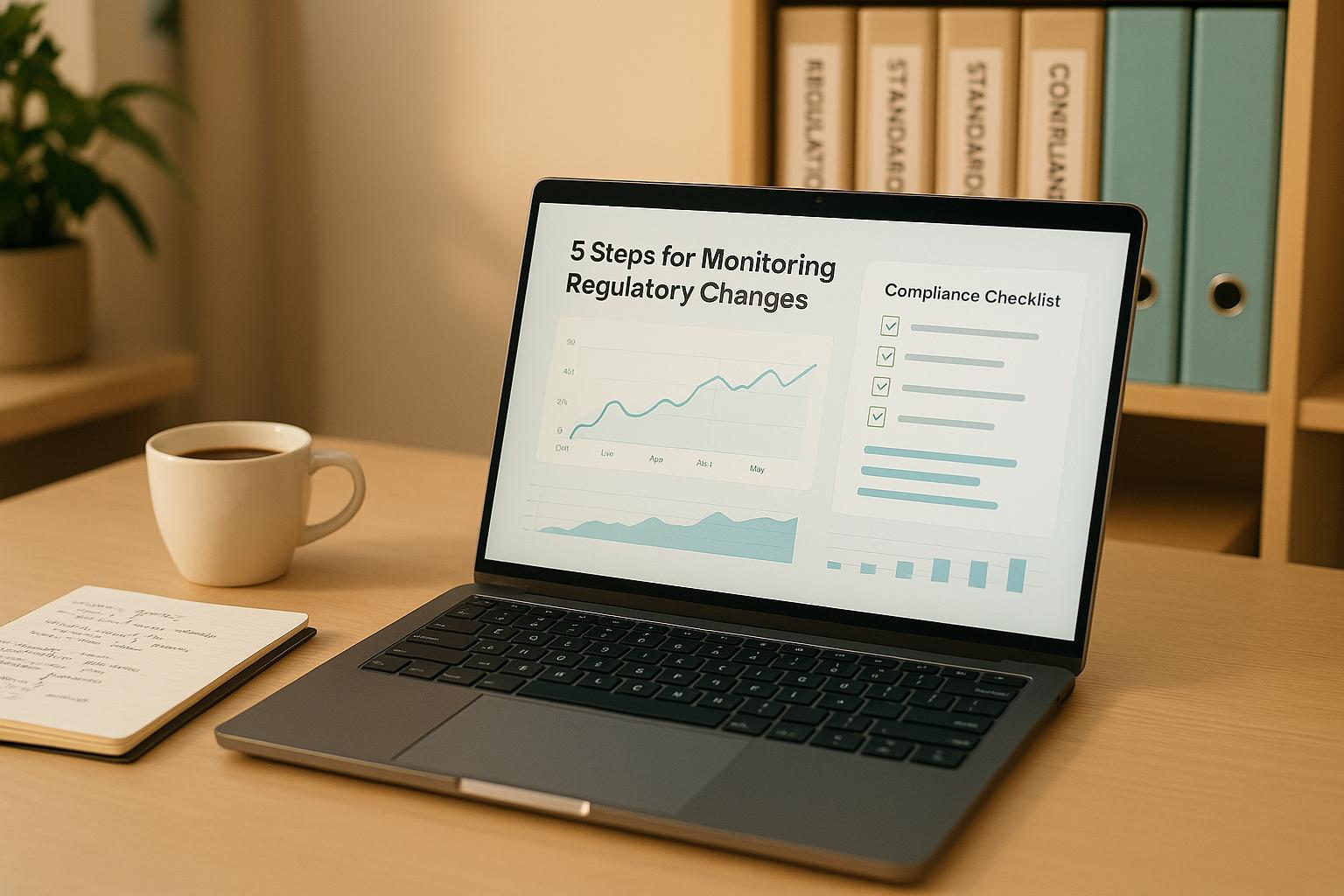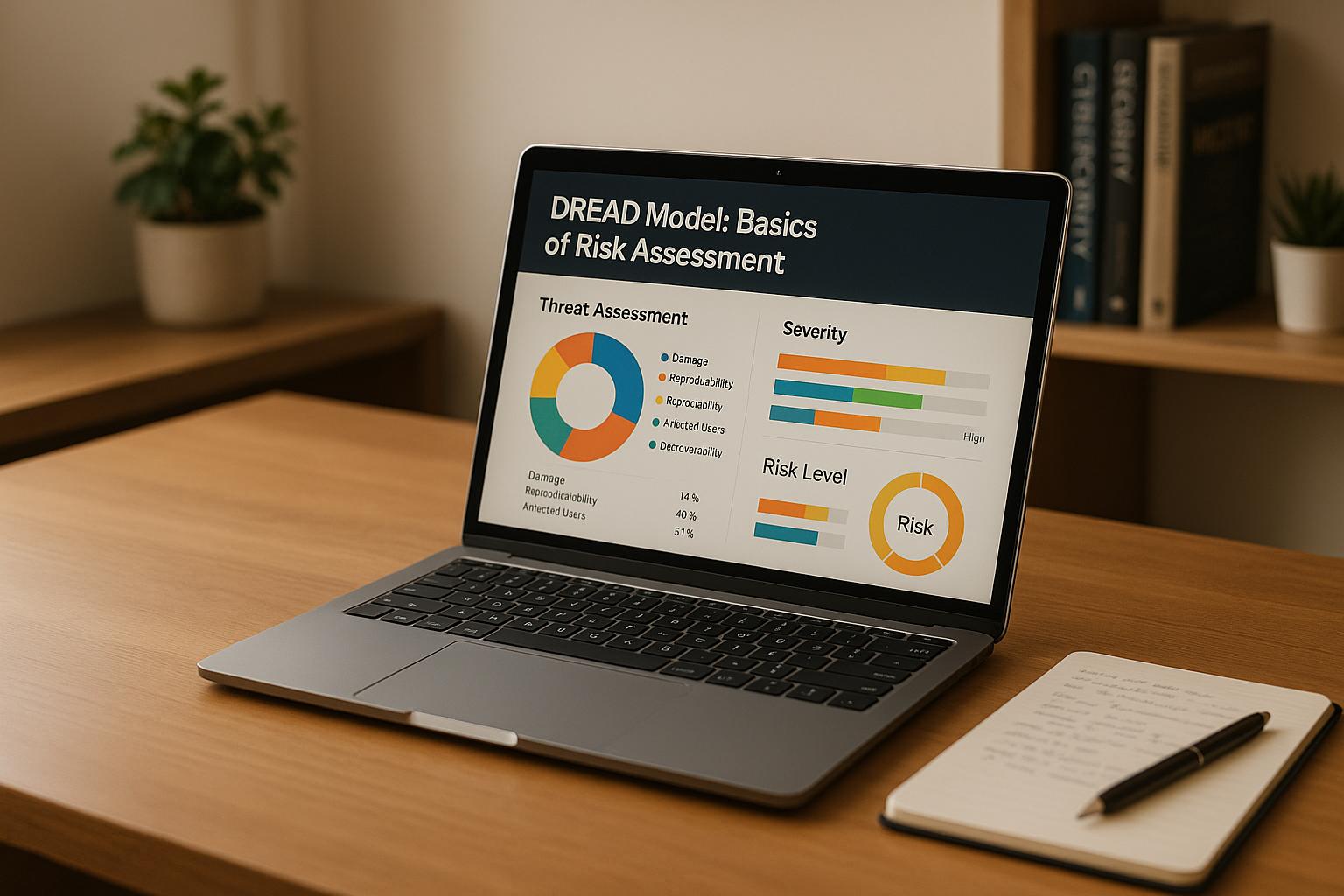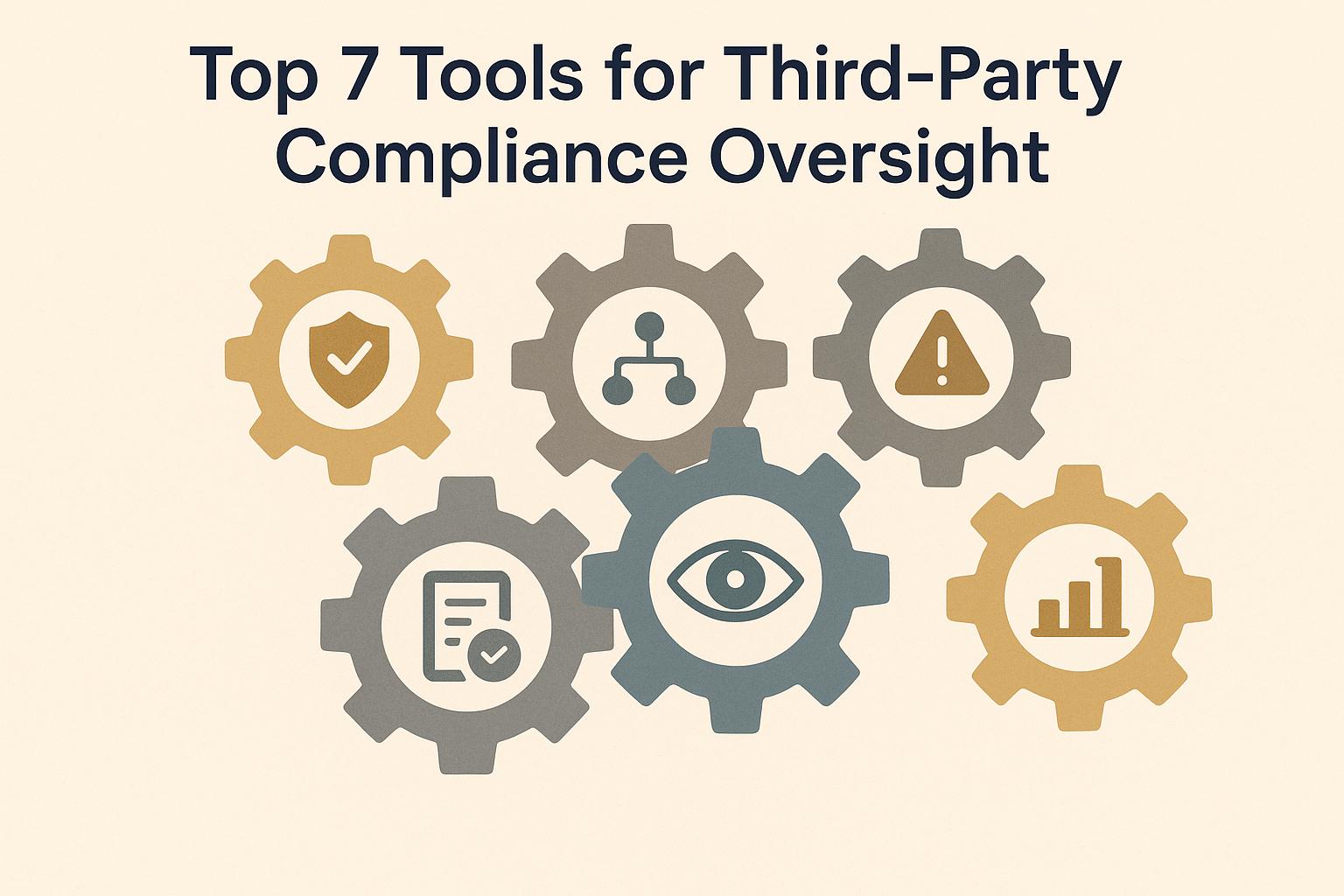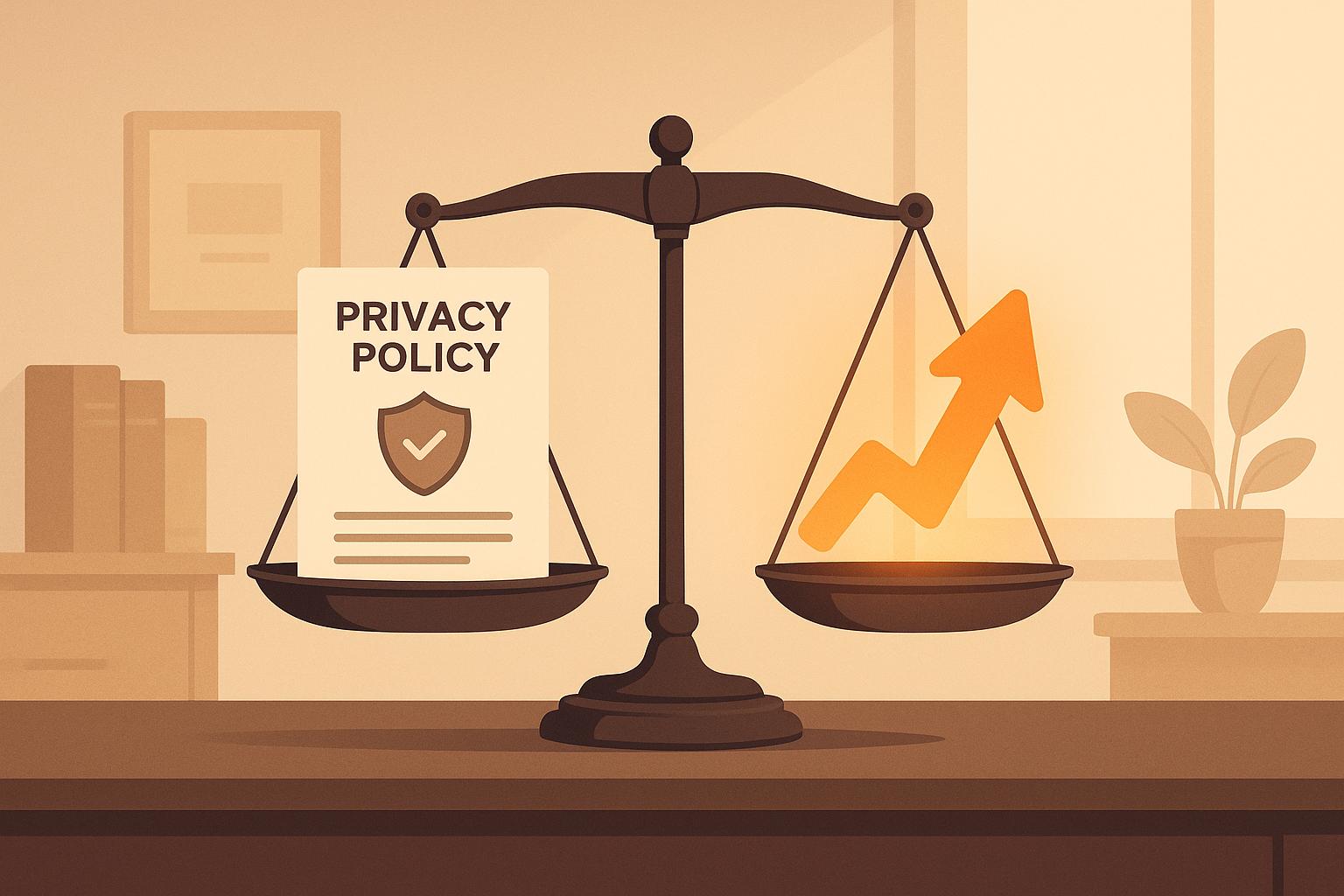
Privacy policies aren’t just legal requirements - they’re tools to drive business success. Here’s why aligning them with your goals matters:
- Build Trust: Transparent policies show customers you prioritize their data.
- Close Deals Faster: Clear documentation simplifies security reviews.
- Reduce Risks: Compliance avoids fines and strengthens credibility.
- Fuel Growth: Meeting standards like GDPR or SOC2 opens new markets.
How to start?
- Review existing policies for gaps.
- Create a plan that ties privacy to growth.
- Get expert help (e.g., virtual CISOs or GRC tools).
- Regularly update and track results to stay aligned.
Privacy isn’t just about compliance - it’s a growth strategy.
Privacy as a Business Driver: How To Build Effective Programs
How Privacy Policies Impact Business Success
Privacy policies play a key role in managing risks, shaping market position, and driving business growth. Crafting policies that protect both the business and its customers can set the stage for long-term success.
Managing Risks and Strengthening Market Position
Well-designed privacy policies help minimize risks and boost market competitiveness.
Here are some key benefits:
- Minimize compliance violations
- Simplify security questionnaires
- Speed up deal closures
- Stand out from competitors
"Showcasing a robust security posture without the expense of a full-time security team positions you as an industry leader. This distinction attracts security-conscious customers and partners." - Cycore Secure
These advantages not only reduce operational risks but also create a strong foundation for earning customer trust.
Building Customer Trust
Clear, transparent policies show customers that their data is a priority. This builds trust, especially in industries like healthcare, finance, and technology, where data privacy is critical.
"For C-suite executives in high-growth SaaS, Fintech, and Healthtech companies, maintaining customer trust is critical... This proactive approach not only protects your customers' data but also significantly enhances their trust in your brand, leading to stronger and more loyal customer relationships." - Cycore Secure
When businesses prioritize trust, they not only protect customer data but also foster loyalty, which can lead to long-term growth.
Turning Compliance Into a Growth Strategy
By treating compliance as an opportunity rather than just a requirement, businesses can unlock operational benefits that fuel growth.
Some growth-focused benefits of compliance include:
- Faster due diligence and deal-making
- Increased productivity through standardized procedures
- Access to new markets by meeting regulatory standards
"By achieving and maintaining compliance, you not only avoid costly fines but also enhance your market credibility, speeding up your sales cycles and boosting customer trust." - Cycore Secure
Examples like ReadMe, which improved sales efficiency by optimizing their security questionnaire process, and Waites, which maintained compliance while focusing on growth, highlight how strategic compliance can deliver real-world results.
For the best outcomes, privacy policies should align with business goals while ensuring compliance. This approach balances the protection of customer data with the support of sustainable growth.
Core Elements of Privacy Policy Alignment
Meeting Legal Requirements
To create effective privacy policies, it's critical to follow the rules and regulations that apply to your industry. For companies in sectors like SaaS, Fintech, and Healthtech, compliance with standards such as SOC2, HIPAA, ISO27001, and GDPR is non-negotiable. These frameworks not only help avoid penalties but also improve your reputation in the marketplace.
"By achieving and maintaining compliance, you not only avoid costly fines but also enhance your market credibility, speeding up your sales cycles and boosting customer trust." - Cycore Secure
Balancing Risk and Business Needs
Building privacy policies that work involves finding the right balance between managing risks and meeting business goals. Companies need to assess how much risk they can tolerate while ensuring their privacy initiatives align with growth strategies. Here are some key areas to focus on:
| Business Area | Privacy Focus | Business Impact |
|---|---|---|
| Sales Cycles | Security Questionnaires | Quicker deal closures |
| Market Access | Regulatory Compliance | Access to new opportunities |
| Resource Allocation | Outsourced Expertise | Cost-efficient security |
| Customer Relations | Data Protection | Greater trust and loyalty |
Bringing in a virtual CISO can provide the leadership you need without the high costs, helping manage risks while keeping growth on track. Beyond legal and risk considerations, successful privacy policies require teamwork across departments and ongoing monitoring.
Working with Teams and Tracking Data
Once the legal and business aspects are addressed, the next step is to involve multiple departments and set up continuous data monitoring. Here’s how to make it happen:
- Train employees on their roles in maintaining privacy
- Regularly update security protocols to meet changing demands
- Foster collaboration between departments to ensure policies stay in sync with operations
"With our expertise, you can confidently manage customer data, avoid regulatory penalties, and build trust with your users." - Cycore Secure
To simplify compliance and reduce operational costs, consider using GRC (Governance, Risk, and Compliance) tools. These tools help maintain strong privacy practices while also supporting your company’s growth.
sbb-itb-ec1727d
4 Steps to Match Privacy Policies with Business Goals
Review Current Policies
Start by assessing your existing privacy policies to spot any gaps that might be slowing down business growth. Pay close attention to areas where privacy requirements could be creating obstacles or where improved privacy measures might offer a competitive edge. Key areas to evaluate include:
- Sales cycle: Are privacy concerns delaying deals?
- Customer data management: How is data being handled?
- Market expansion: Are privacy policies flexible enough for new markets?
- Compliance: Are you meeting all necessary regulations?
For example, if security questionnaires are holding up your sales process, it might be time to improve your privacy documentation and compliance systems. This evaluation sets the stage for a privacy strategy that aligns with your business goals.
Create a Privacy Plan
Once you've identified the gaps, create a clear plan to address them while keeping your business objectives in mind. This plan should tie privacy requirements directly to your goals. Here's a simple framework to guide you:
| Business Goal | Privacy Requirement | Implementation Strategy |
|---|---|---|
| Market Growth | Framework Compliance | Earn certifications like SOC2 or HIPAA |
| Sales Efficiency | Security Documentation | Simplify responses to security questionnaires |
| Customer Trust | Data Protection | Introduce stronger privacy controls |
| Cost Management | Resource Optimization | Use external expertise to cut costs |
Set clear deadlines and allocate resources to ensure measurable outcomes. As Tahseen Omar, Chief Operating Officer at Anterior, highlights:
"Cycore's services allowed us to have the security expertise at hand when it mattered the most"
Get Expert Help
Bringing in experts can make privacy implementation more efficient and effective. A Virtual Data Protection Officer (vDPO) can help ensure your company stays compliant while also supporting growth. Nils Schneider, CEO & Co-Founder of Instantly, shares:
"With Cycore, there's no need for my team and I to worry about security and privacy. Cycore keeps us up to date on our compliance program and notifies us ahead of time if they need something from us"
You could also consider GRC Tool Administration services to:
- Simplify compliance tasks
- Lower operational costs
- Maintain consistent privacy protocols
- Monitor how effective your policies are
Tracking Results and Making Updates
Measuring how well your privacy strategy aligns with business goals is essential for success.
Set Success Metrics
To understand the impact of privacy policies on your business, track specific metrics that tie compliance efforts to measurable outcomes. Use a dashboard to monitor key areas:
| Business Area | Metrics | Target Impact |
|---|---|---|
| Sales Performance | Sales cycle duration | Simplify compliance to reduce the time needed to close deals |
| Market Position | Customer acquisition | Build trust to attract clients who prioritize security |
| Risk Management | Compliance incidents | Track and reduce potential breaches |
| Operational Efficiency | Resource allocation | Cut costs by improving compliance management practices |
Review these metrics regularly to spot trends and identify areas for improvement. This approach not only ensures compliance but also highlights how privacy investments can drive business growth.
Schedule Regular Reviews
Keeping privacy policies effective requires ongoing evaluation and updates. Establish a clear review schedule:
Quarterly Assessments
- Compare compliance requirements with current practices.
- Check how well your privacy controls are working.
- Update documentation to reflect any operational changes.
Annual Strategic Review
- Examine how privacy policies are influencing business goals.
- Identify new opportunities and adjust for changing compliance needs.
- Plan resources for future privacy initiatives.
These reviews help ensure your privacy strategy stays relevant and supports growth.
Build Privacy Awareness
As your privacy strategy evolves, creating a culture of awareness is crucial. Here’s how you can achieve that:
Training and Communication
- Host regular security training sessions.
- Share updates to privacy policies during team meetings.
- Offer specific compliance guidance tailored to different roles.
Accountability Measures
- Designate privacy champions within each department.
- Track the completion of required training programs.
- Monitor adherence to established privacy protocols.
These steps ensure that privacy remains a priority across your organization.
Conclusion
Balancing privacy policies with business goals is crucial for growth, market success, and earning customer trust. Companies that align compliance with their strategic objectives often gain a competitive edge.
Real-world examples highlight the impact of expert guidance in merging privacy policies with business strategies. Many organizations have shown that prioritizing privacy within their plans not only ensures compliance but also delivers measurable advantages.
To recap, businesses should focus on these key actions:
- Streamline compliance within daily operations to minimize disruptions in sales and workflows.
- Seek expert advice to handle complex regulations with confidence.
- Cultivate a privacy-conscious culture that aligns with both legal and business goals.
- Track and evaluate outcomes to confirm that privacy efforts contribute to business success.
"Being in the healthcare space, we take security and privacy seriously. Cycore's services allowed us to have the security expertise at hand when it mattered the most"
This quote highlights how expert support can help businesses align privacy and compliance efforts, safeguarding data while driving growth.
FAQs
How does aligning privacy policies with business goals build trust and support growth?
Aligning privacy policies with your business goals shows a strong commitment to protecting customer data, which builds trust and strengthens relationships. When customers feel confident their information is secure, they are more likely to remain loyal to your brand.
Additionally, aligning privacy with business objectives helps ensure compliance with regulations, streamlining processes like sales cycles and fostering a reputation for reliability. This proactive approach not only protects your business but also creates opportunities for sustainable growth.
How can businesses create privacy policies that comply with regulations and align with their strategic goals?
To create privacy policies that are both compliant and aligned with strategic goals, businesses should take a structured approach. Start by identifying the regulatory frameworks relevant to your industry, such as SOC 2, HIPAA, ISO 27001, or GDPR, and ensure your policies address these requirements. Next, align your privacy policies with your business objectives by prioritizing transparency, customer trust, and operational efficiency.
Partnering with a trusted provider like Cycore can streamline this process. Their expertise in security, privacy, and compliance services - such as Virtual CISO (vCISO) leadership and Virtual Data Protection Officer (vDPO) services - helps businesses navigate complex regulations while achieving their strategic goals. By maintaining compliance, companies can avoid penalties, enhance credibility, and build stronger customer relationships.
How can businesses evaluate if their privacy policies support their overall success?
Businesses can evaluate the success of their privacy policies by analyzing their impact on key areas like compliance, customer trust, and operational efficiency. Meeting regulatory standards such as SOC2, HIPAA, ISO27001, and GDPR not only ensures legal compliance but also builds credibility and fosters trust with customers.
Effective privacy policies can also accelerate sales cycles by addressing customer concerns upfront, leading to stronger relationships and quicker deal closures. Additionally, a well-implemented privacy strategy can set a business apart in competitive markets, attracting security-conscious clients and partners while reinforcing a reputation for reliability and professionalism.












